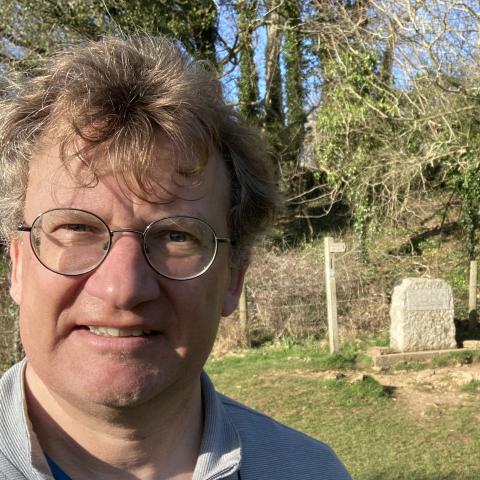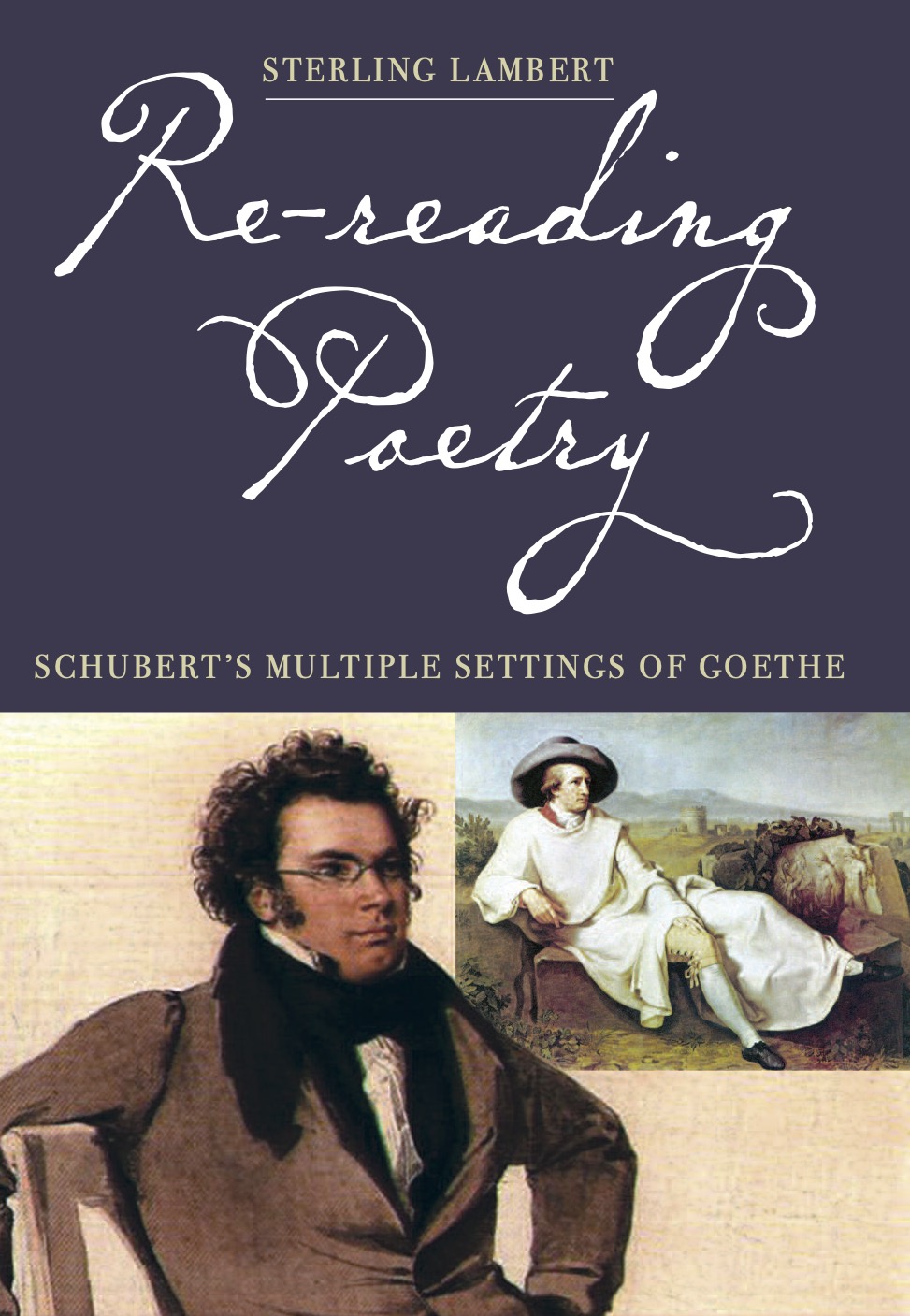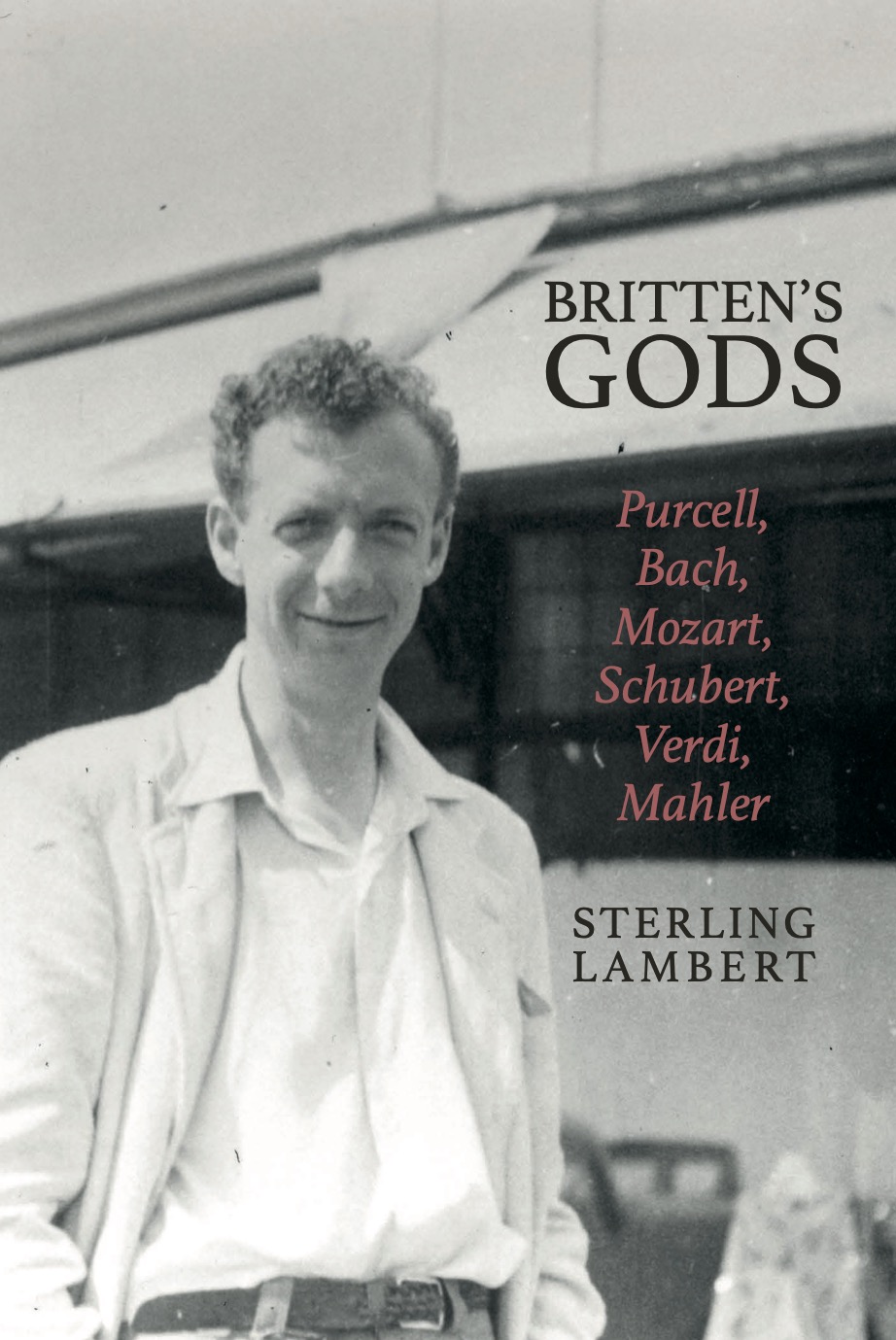Professor of Music - Music History and Theory
Department Chair

Biography
Sterling Lambert was born in London in 1968. After completing B.A. and M.Phil. degrees in musicology at Cambridge University, he moved to the United States, where he completed his Ph.D. at Yale University in 2000. He then spent a number of years in Boston, where he taught at both Tufts and Harvard Universities before taking up his current position at St. Mary’s in 2006. Dr. Lambert’s particular area of interest lies in text-music relationships and issues of intertextuality in music of the nineteenth and twentieth centuries. In addition to journal articles and conference presentations around the world, Dr. Lambert has written two books. Re-reading Poetry, on Franz Schubert’s multiple settings of Goethe’s poetry was published in 2009 by The Boydell Press, and Britten's Gods, on the English composer Benjamin Britten and the influence of six composers (Purcell, Bach, Mozart, Schubert, Verdi and Mahler) on his music, was published in 2024 by Clemson University Press.
Courses taught
MUSC 203 and 204: Music Theory I and II
MUSC 318 and 319: Music History I and II
MUSC 216: Introduction to the World's Music
LEAD 101: First Year Seminar
Areas of Research Specialization
- Songs of Franz Schubert
- Music of Benjamin Britten
Areas of Teaching Specialization
- Music History
- Music Theory
Education
-
B.A. in Music at University of Cambridge, 1990
-
M.Phil. in Musicology at University of Cambridge, 1991
-
Ph.D. in Music History at Yale University, 2000
Spotlight
- Re-reading Poetry: Schubert’s Multiple Settings of Goethe
One of the most important aspects of Franz Schubert's song production has remained relatively neglected: the many occasions on which he set poetry to music more than once. This practice of returning to poems, and responding to them anew, is unusual and suggests a greater degree of literary sensitivity on the part of Schubert than is often ascribed to him. In contrast to his similarly frequent tendency to produce revised versions of songs, Schubert's resetting of poetry results in completely new songs. The presence of residues of earlier settings in later ones prompts consideration of the degree to which resettings are to some extent 'radical revisions' of their predecessors. It also raises questions as to what those residues might signify about how and why Schubert reset poetry. Nowhere are such issues more fascinatingly and comprehensively illustrated than in Schubert's multiple settings of the poet who was more important to him than any other: Johann Wolfgang von Goethe. In recent years, a renewed interest in the relationship between Goethe and Schubert has demonstrated that the two men had more in common than has historically been supposed. A specific bond between them lies in Goethe's recognition that his poems could be read in more than one way. Re-reading Poetry uncovers an important shared outlook between composer and poet.

- Britten's Gods: Purcell, Bach, Mozart, Schubert, Verdi, Mahler
This book investigates the relationship between the activities of Benjamin Britten as a composer and performer by considering the influence of six composers whom he particularly admired (and whose music he performed especially often) on his own music. This is done by taking six pieces of Britten's music (spanning the entirety of his career), each of a different genre, and comparing each one with a piece in the same genre by one of the six composers, which Britten performed at approximately the same time. 1) Britten: Second String Quartet (1945) / Purcell: Chacony, 2) Britten: The Rape of Lucretia (1946) and Albert Herring (1947) / Verdi: Otello and Falstaff, 3) Britten: Winter Words (1953)/ Schubert: Winterreise, 4) Britten: War Requiem (1962) / Bach: St. John Passion, 5) Britten: Night Piece (1963) / Mahler: Seventh Symphony, 6) Britten: Death in Venice (1973) / Mozart: Idomeneo

